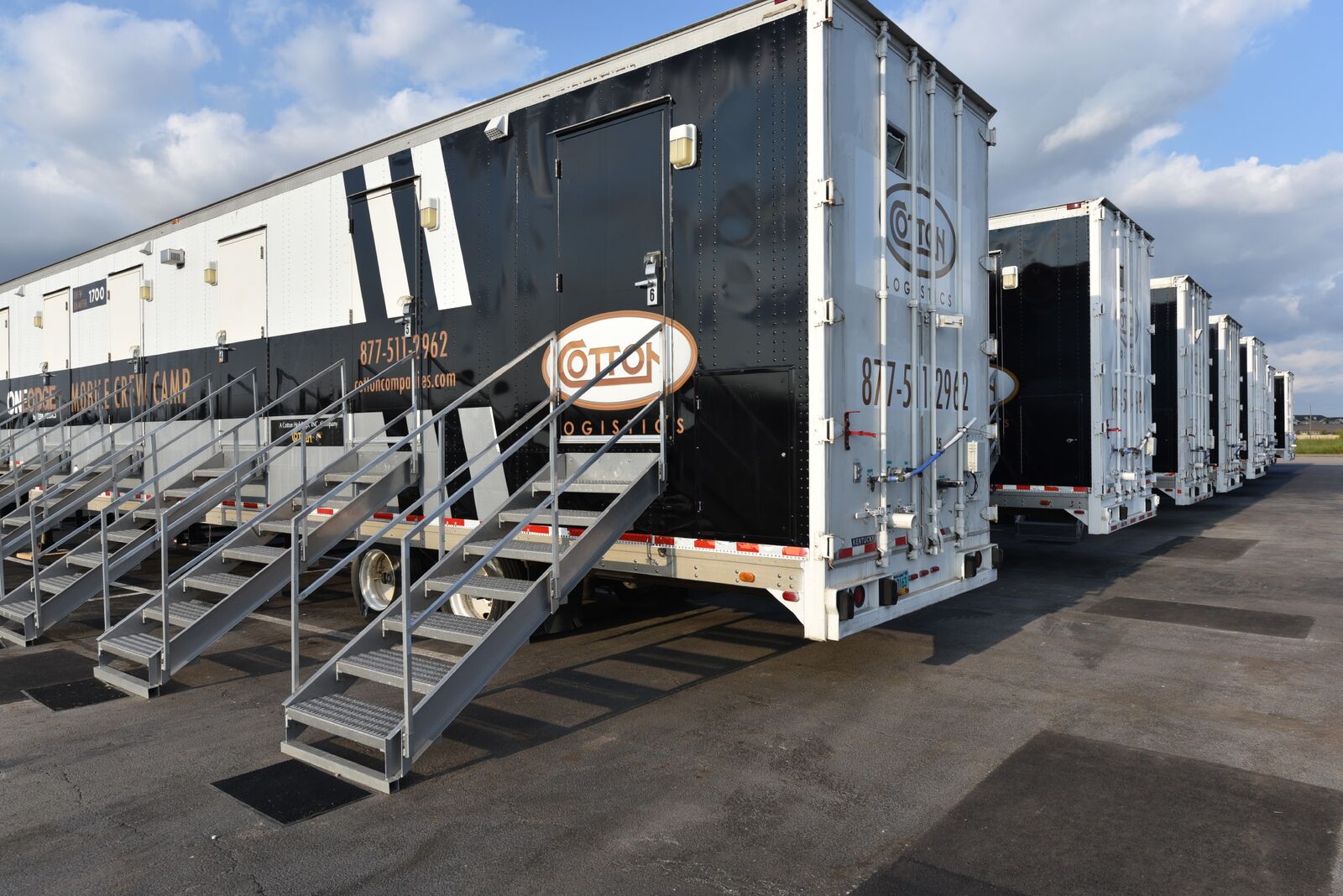Making it Our Priority: Ensuring a Safe Living Environment for Cotton Crew Camp Guests
Cotton Logistics has developed a safety program that focuses on protecting the areas surrounding our mobile crew camps while delivering the highest quality product and continuously improving and maintaining our health, safety and environmental (HSE) performance and sanitation standards within our camp design, construction and operation.
Cotton Logistics' Safety Department provides safety oversight, audits, training, hazard recognition and hazard control methods and constantly develops new programs in camp operations that promote individual responsibility while maintaining a safe workplace through proven practices and procedures.
By focusing on the principle that every employee is responsible for the safety of the camps, the HSE team has developed innovative programs that involve all levels of staff to keep the camps running at optimum levels and give our clients a sense of assurance that their workforce is residing within a safe and controlled environment while not on shift.
Critical practices that have been implemented by the Safety Department include:
- A safety and health program that is tailored for each location. An effective program makes all the difference in preventing injuries and illnesses in the workplace. The result is higher productivity, improved employee morale, lower turnover, fewer accidents and lower costs related to preventable accidents.
- A job hazard analysis that identifies specific hazards that are present or may be associated with a specific project or task. These provide critical information, including step-by-step procedures pertaining to the prevention of injury and risk related to known hazards. They are also used to educate employees on how to safely utilize equipment that may cause harm to the employee or others during operation.
- Daily safety meetings at the beginning of each project, task and/or shift that employees are required to participate in. These documented "Tool Box Safety Meetings" address numerous topics that are designed to keep employees focused and informed on safety issues that pertain to their daily activities and the environment they work in, such as personal protection equipment (PPE) and the proper use thereof, camp electrical safety, cleaning and sanitation procedures, proper food handling, slip and trip hazards and pest control methods.
- Best practices that are established over time through efficient and safe operations. These have been proven to reduce or prevent workplace accidents. And in the event of an accident or injury, the involved personnel are subject to mandatory training related to that specific safety topic, and all training is logged.
- Teamwork is promoted across all levels of personnel from the camp managers to housekeeping to culinary staff and up through the management and executive teams that are in constant communication with the staff operating at each location.
Cotton Logistics is committed to the safety and overall well-being of our employees, vendors and guests, and our Safety Department continues to implement additional training programs and refine our safety procedures to exceed all applicable state, federal and local regulations and requirements within the industry.

